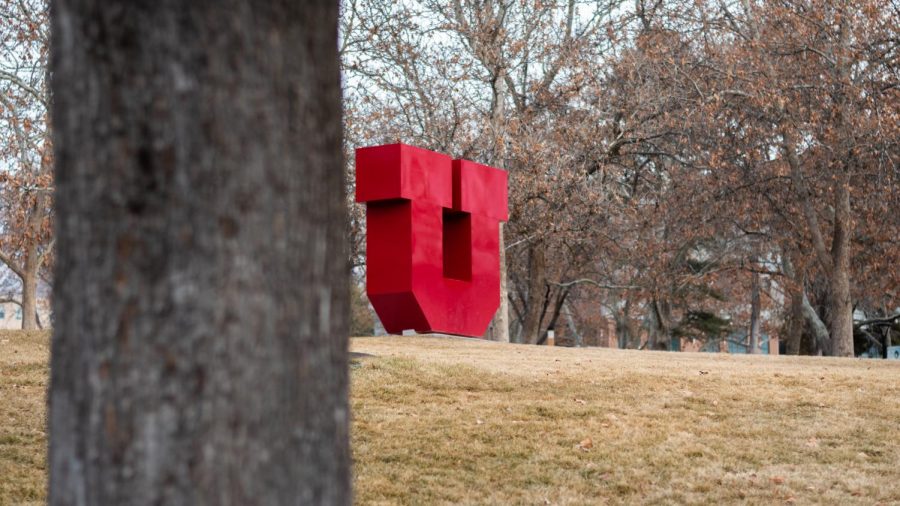Eighteen University of Utah students and recent graduates have had their visas revoked and student records terminated in a federal immigration database, the university confirmed Monday.
The revocations, carried out by the U.S. Department of Homeland Security, are part of a broader wave of student visa terminations under the Trump administration. Hundreds of international students nationwide have been affected, with foreign-born student activists often among those targeted.
At the U, DHS cited “failure to maintain nonimmigrant status” and, in some cases, criminal record checks as the reasons for revoking visas, according to university officials.
International students are tracked through the Student and Exchange Visitor Information System (SEVIS), a federal database that monitors F and M visa holders and exchange visitors on J visas. The U currently hosts 3,733 F visa students and 371 J visa holders, including those in post-graduation work programs such as Optional Practical Training (OPT) and STEM OPT.
While SEVIS terminations due to criminal conduct — such as domestic violence allegations or DUIs — are not uncommon, the university noted an irregular trend: some terminations have occurred without prior notice to the school or the affected students.
University officials said none of the impacted students have been flagged for participating in protests.
In an April 9 message to students and faculty, Dean Michelle Camacho of the College of Social and Behavioral Science said the affected students were asked to “immediately self-deport,” calling attention to the rapid pace of immigration enforcement changes.
“The circumstances affecting our international community are changing with little notice,” the email read. “We urge caution regarding international travel and encourage our non-U.S. citizen students, scholars and employees to consult with university legal and immigration support services.”
The Trump administration also announced Wednesday a new policy to begin screening immigrants’ social media accounts for content deemed “antisemitic.” The policy, effective immediately, may be used to deny immigration benefits, including permanent U.S. residence, and could impact individuals affiliated with academic institutions.
“DHS will enforce all relevant immigration laws to the maximum degree, to protect the homeland from extremists and terrorist aliens, including those who support antisemitic terrorism, violent antisemitic ideologies,” the agency said in a statement. “And antisemitic terrorist organizations such as Hamas, Palestinian Islamic Jihad, Hezbollah or Ansar Allah.”
As a public institution, the U emphasized that it complies with state and federal law and acknowledged that immigration enforcement has intensified. The school is providing guidance to help international students and scholars maintain legal status.
Other schools have reported student visa revocations, according to The Salt Lake Tribune, including five at Weber State University, three at Salt Lake Community College, two at Snow College, three at Utah Valley University and nine at Utah Tech University. Utah State University has also reported revocations but has not disclosed a number.
University Offers Guidance for Visa Holders
In a campus-wide message, the International Student and Scholar Services (ISSS) office said it is closely monitoring federal policy changes. ISSS urged F-1 and J-1 visa holders to remain enrolled or employed full time, comply with all laws, and keep immigration documents readily accessible.
While no formal policy changes have been announced by the federal government, ISSS warned that “modifications can occur with little notice.”
Key recommendations from ISSS include:
-
Avoiding non-essential international travel, as reentry is at the discretion of U.S. Customs and Border Protection.
-
Carrying valid passports, visas, I-20 or DS-2019 forms, and proof of enrollment or employment (if on OPT).
-
Consulting ISSS before traveling or if visa concerns arise.
The university acknowledged the anxiety surrounding immigration status and pointed students to campus mental health services. The U’s Counseling Center, which offers multilingual services, and case management support are available to assist.
National organizations such as the American Civil Liberties Union and the National Immigration Law Center were also listed as legal and advocacy resources.
Affected students are encouraged to contact ISSS at international@utah.edu or 801-581-8876.
April 09, 2:40 p.m. • This is a breaking story and will be updated as the story progresses.





Danielle • Apr 11, 2025 at 5:02 pm
If only the Australian government were as diligent as the U.S.